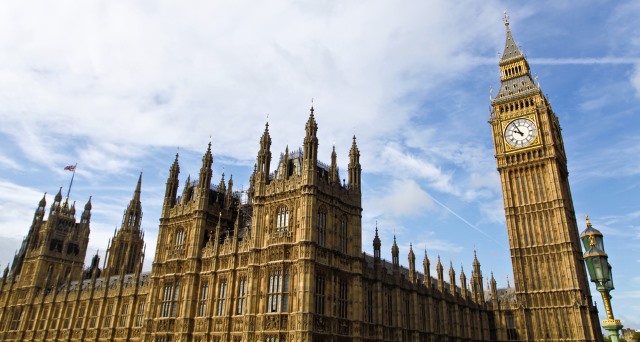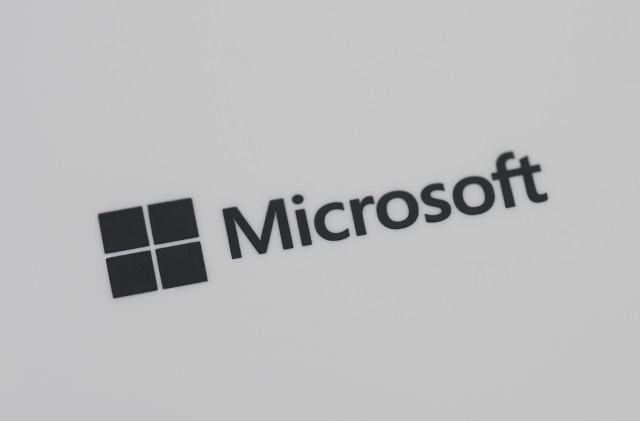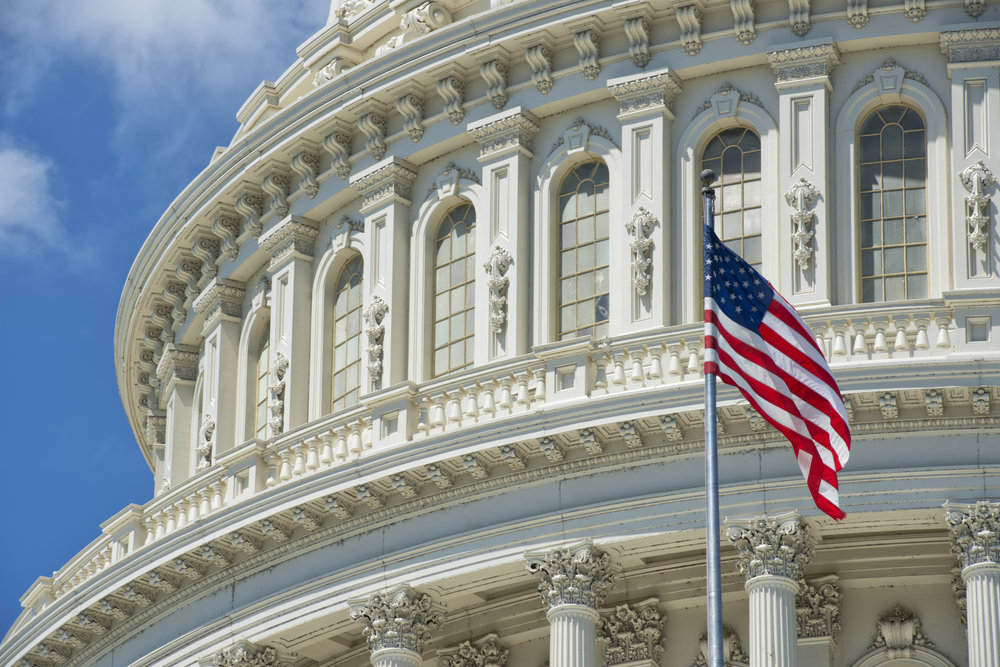
UK government pledges cash to boost the digital economy
In today's budget speech the UK Chancellor, Phillip Hammond, has announced a number of measures aimed at boosting the tech sector.
These include £500m of support for 5G mobile networks, full fiber broadband and artificial intelligence and £540m to support the growth of electric cars, including more charging points. A further £2.3bn is allocated for investment in research and development and £30m to develop digital skills distance learning courses.

Microsoft drops lawsuit against US government after DOJ reins in use of gagging orders
Microsoft has announced that it will drop its lawsuit against the US government after the Department of Justice said that it will use fewer secrecy orders when making requests for user information.
Microsoft's battle has been running since April last year, and it gained support from the likes of Mozilla, the EFF, Google and Apple. The company was not happy that gagging orders prevented it from telling customers when investigators requested access to their data. The move by the DOJ is described by Microsoft president and chief legal officer Brad Smith as an "important step for both privacy and free expression," and a step to "protect the constitutional rights of all Americans."

Government organizations lag behind in implementing latest security practices
Cyber attacks are becoming more complex and intense. In addition, many hackers are interested in the types of sensitive data held by government bodies. Yet a new study shows that these organizations are lagging behind in dealing with IT risks.
The study by data visibility platform Netwrix reveals that while 57 percent of government entities focus on endpoint protection, 72 percent experienced security incidents in 2016, the most common reasons being human errors and insider misuse.

72 percent of security pros say encryption backdoors won't stop terrorism
A new survey of information security professionals carried out at last month's Black Hat conference suggests that the majority think encryption backdoors are ineffective and potentially dangerous.
The study carried out by machine identity protection company Venafi finds that 72 percent of respondents don't believe encryption backdoors would make their nations safer from terrorists.

Former MI5 chief says UK government should not weaken encryption
The UK government has made no secret of its desire to exert greater control over the internet, and home secretary Amber Rudd has gone as far as suggesting that encryption should be weakened -- and backdoors should be included in software -- to make it easier to carry out surveillance on terrorists.
Lord Jonathan Evans, the former chief of MI5 in the UK, acknowledged that encryption had got in the way of monitoring communication between extremists, but said this should not be used as an excuse to weaken security.

Two-thirds of consumers suspect governments abuse their powers to access data
According to a new study 51 percent of people don’t believe their government can protect their personal data, and nearly two-thirds (65 percent) suspect their government already abuses its powers to access the data of citizens.
Identity protection company Venafi surveyed 3,000 consumers in the US, UK and Germany about initiatives that would grant governments more access to private, encrypted data.

Plans for age checks on porn sites highlight the UK government's failure to understand the web
If there's anything that the UK government has demonstrated in recent years it is that it not only wants to try to take control of the web, but it also fails to understand the web. These two facts make for a terrible combination -- something highlighted by the snooper's charter and the government's desire to break encryption on demand.
The latest idea -- ushered in under the guise of protecting children in a bid to win points -- is the introduction of age restriction on porn sites. The Digital Economy Act will require porn sites to use credit card verification to check that users are aged 18 or over. There are numerous holes here, illustrating that the government simply doesn’t know what it's talking about.

UK parliament cyber attack highlights the shortcomings of passwords
As we reported over the weekend the UK parliament's email system was subject to a brute force attack using passwords stolen in the 2012 LinkedIn breach.
Security experts have been quick to point out the inherent weakness in large organizations and government departments relying on passwords to protect highly sensitive data.

US considers laptop ban on European flights
The Trump administration is considering a further expansion of the ban on using laptops on commercial flights to cover European travel.
According to Reuters , the US government is reviewing how to make sure lithium batteries that get stored in the luggage don’t explode during flights.

US government is reviewing whether to use Kaspersky software, because Russia
Mention the US and Russia in the same sentence and the mind naturally wanders to three things. Firstly, the alleged links between the Trump administration and Russia, secondly whether or not the FBI investigation of these alleged links led to the dismissal of Comey, and thirdly whether or not Russia interfered with the US election.
But now the US government is reviewing whether or not to continue to use Russian-made security software from Kasperksy. Defense Intelligence Agency director Vincent Stewart says "we are tracking Kaspersky and their software." He does not elaborate or give reasons, but there have been -- as yet unsubstantiated -- claims that Russia has been using Kaspersky software to spy on America. The director of the NSA is "personally involved" in monitoring the company.

Governments are the biggest targets for cyber attackers
Cyberattacks against the government sector increased by 100 percent in 2016, rising up to 14 percent, according to a new report by Dimension Data. The financial sector has also seen a dramatic increase in the number of attacks, from three percent in 2015 to 14 percent in 2016.
The manufacturing sector is now on third place with 13 percent of all attacks while retail, which used to be the number one target, fell to fourth place with 11 percent. Poor retail.

Netrepser malware targets government agencies
Researchers at cyber security firm Bitdefender recently unveiled a new targeted attack and named it Netrepser. What makes this threat different from other APTs (advanced persistent threat) is that it was built with readily available software tools.
The goal of Netrepser, according to Bitdefender, is to steal data from government agencies. No information on which agencies were targeted. Netrepser uses multiple methods to get its tiny digital hands on the victim’s information, from keylogging, to password theft, to cookie theft. At the very heart of this tool is a "legitimate, yet controversial" recovery toolkit provided by Nirsoft.

NSA to stop reading certain American emails -- will delete some previously collected messages
The government is supposed to work for the people, but sometimes, it can feel like it is against them. In a democratic country like the USA, where many officials are elected by citizens, you would think this wouldn't be the case, but sadly, it often is. As Edward Snowden revealed in his leaks, the US government has programs where it spies on its own people, doing things like scanning and reading their emails.
Today, the National Security Agency announces -- somewhat begrudgingly -- that it will stop the collection of some American emails that simply mention known foreign targets. It will instead only collect communications to and from the target directly. While this is a big win for the privacy of American people, the NSA is seemingly implying that it could have negative implications for safety. In fact, the agency tries very hard to distance itself from any wrongdoing by making it clear that the reading of these emails were legal and allowed.

34 percent of US government agencies have had data breaches in the last year
According to a new report from systems security specialist Thales e-Security and 451 Research, US federal agencies are facing threats caused by legacy systems, spending and staffing issues.
65 percent have experienced a data breach at some stage in the past with 34 percent having one in the last year. Almost all agencies (96 percent) consider themselves 'vulnerable', with half (48 percent) stating they are 'very' or 'extremely' vulnerable. This number is higher than any other US sector polled for the 2017 Data Threat Report.

New rating system measures national cyber security risk
Although governments need to secure their nation's critical infrastructure from cyber attack, they can often lack the context in which to assess risk.
Security ratings specialist BitSight is addressing this with the announcement of its Sovereign Security Ratings, the first objective measurement of national cybersecurity risk.
